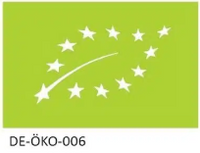Rose root has long been used in folk medicine and is known by many names such as Rhodiola rosea, Sedum rosea, Rhodiola, golden root or stress plant. Extracts from the root and rhizome are used as a herbal remedy to relieve emotional and mental symptoms caused by stress. Roseroot is a member of the family of the thick-leaved plants and has yellow flowers. It grows in Europe, North America, Siberia, Great Britain and the Himalayas. The plant therefore grows mainly in the colder regions of the world and especially in cooler high mountains. Find out more about the effects of roseroot, its numerous areas of application and interesting facts about this plant.
Table of contents
1 What are the ingredients of roseroot?
Roseroot has been used as a medicinal plant for many thousands of years. Its effectiveness is now becoming increasingly well known and today an extract is obtained from the roots of roseroot, which is used as an ingredient in numerous supplements. In China and Russia in particular, the leaves are often eaten with other vegetables or brewed as tea. Ingredients such as glycosides and the aglycone p-tyrosol are particularly responsible for the rose root effect. Salidroside, rosavin, rosin and rosarin in particular are considered to be effective ingredients of the root, the extract of which has an adaptogenic and stimulating effect.
2 What are the known effects of roseroot?
Rose root is primarily said to reduce stress. It is said to alleviate stress-related symptoms of fatigue and increase performance. However, the plant is also said to have numerous other effects. Possible effects at a glance:
- Supports mental and physical vitality
- Helps with burnout
- Helps against depression
- alleviates stress symptoms
- alleviates states of exhaustion
- increases performance
- helps with altitude sickness
- increases serotonin levels
- regulates memory performance
- Helps with anxiety and aggression
3. how does roseroot affect the psyche?
Roseroot against stress
The best-known effect of roseroot is probably its adaptogenic effect. But what does that actually mean? Adaptogenic herbs are said to help maintain the body's balance. The results of a study by the Alternative Medicine Review confirm that the adaptogenic effect of roseroot extract can have a positive influence on homeostasis.
More performance & energy
Rose root is probably the best-known adaptogen that supports the body during stress and makes it more resistant in the long term by inhibiting the release of the stress hormone cortisol.
Help with listlessness and mild depression
Roseroot is said to inhibit the breakdown of serotonin and other neurotransmitters, thereby improving mood. Rose root could therefore be a mild remedy for listlessness.
4 How is the medicinal plant used?
Roseroot is usually available in the form of preparations such as capsules, coated tablets or tinctures. The dosage depends on the concentration of roseroot in the respective preparation.
5 What do I need to bear in mind when taking it?
As there is no evidence to date, pregnant and breastfeeding women and children under the age of 12 are advised not to use the product. Interactions between roseroot preparations and other medications cannot be ruled out.
Sources
- Goyvaerts, B. et al: Efficacy of the Rhodiola rosea special extract SHR-5 in burnout and fatigue syndrome - results of a practical study. Z Phytother 2012; 33 - P13
- Grünwald, J. et al: Rhodiola rosea: an adaptogen for burn-out. Z Phytother 2011; 32(4): 161-163
- Huber, R. & Michalsen, A.: Checklist complementary medicine, Haug Verlag, 2014
- Hung, S.K. et al: The effectiveness and efficacy of Rhodiola rosea L.: a systematic review of randomized clinical trials. Phytomedicine. 2011 Feb 15;18(4):235-44.
- Cooperation Phytopharmaka GbR: www.koop-phyto.org (Retrieved: 31.07.2017)
Important note / disclaimer: As pharmacists, we share our pharmaceutical expertise and wealth of naturopathic experience in the Casida guide. An individual diagnosis and consultation is necessary in every case. Therefore, this offer cannot replace medical advice. It is not intended to treat, cure or prevent any disease. It is not a substitute for medication or other treatments prescribed by a doctor.





